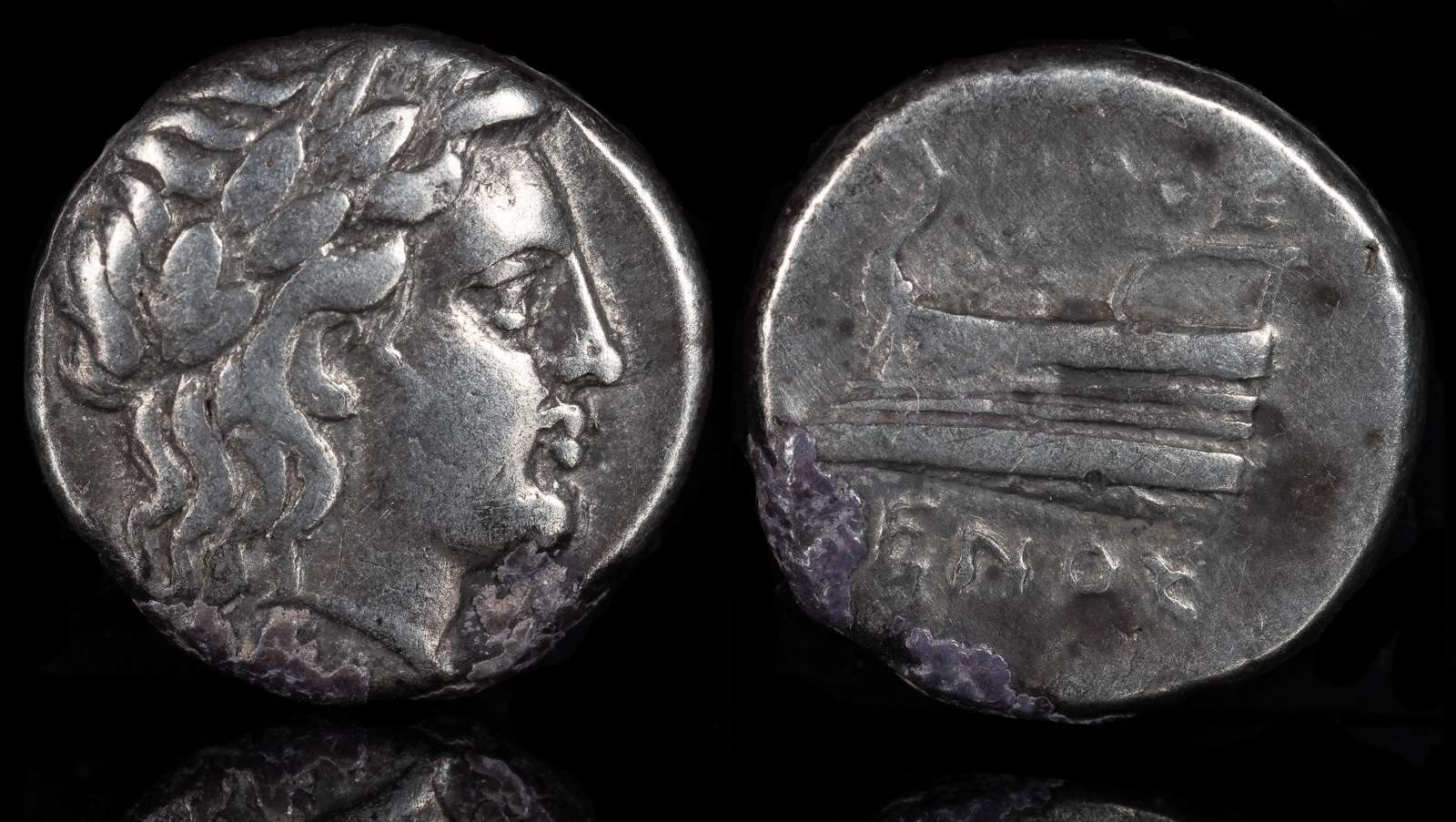
Bithynia, Kios
AR Hemidrachm 2.57g, 13mm, 11h
Circa 345-315 BCE
Proxenos, magistrate
Laureate head of Apollo to right; [KIA] below chin / Prow of galley to left, ornamented with star; ΠPOΞ-ENOΣ above and below
RG 4; HGC 7, 554
Kios occupied a strategic location on the Propontis, which today is called the Sea of Marmara. It is believed to have been founded by settlers from Kios and takes its name from Kios, one of the companions of Herakles. Kios in legend founded the city on his way back from Colchis, in modern day Georgia.
The city was served by two rivers – the Kios and the Hylas – during ancient times. The Hylas was named for another companion of Herakles, who was carried away by nymphs. Alternatively, he visited a bar, got drunk, and missed the boat departure. The legend words it much nicer though.
Kios was an important city on the road between Nikomedia and Amastris and today lies roughly halfway between Ankara and Istanbul.
One ancient story that took place at Kios was that of Arganthone. Unlike many women back then, she didn’t like staying at home but instead loved hunting with her dogs. She never took any companions and was a loner. When a man named Rhesos heard about her, he visited her and stated that he also didn’t like to hang out with men and asked to hunt with her. She agreed, and over time fell in love with him and they married.
When the Trojan War broke out, the Trojans sought him as an ally and he wanted to go, but Arganthone wouldn’t let him. In the end, he couldn’t take the restlessness and joined the Trojans. In Troy, he was wounded by Diomedes and died. Arganthone was so distrought that she wandered about, calling his name. She then starved herself to death.
Kios founded.
Kios is founded by settlers from Miletos.
The Persians burn Sardis, then take Kios.
August 7
Eresos, Byzantion, Chios,Mytilene, Methymna, Rhodes, Thebes, Korkyra, Eretria, Kios, Samos, Naxos, Andros, Myrina (Lembos), Hephaistia, Imbros, and Thasos join the Second Athenian League, reaffirming its alliance with Athens in response to the growing threat of Persian interference and internal Greek conflicts.
Mithridates I is slain in Kios after appearing to shift his allegiance from Antigonos Monophthalmos to Kassander. He had also ruled Myrleia.
Kios and Myrleia destroyed by Philip V, which enrages the Aetolian League.